EGM TIMES
EXPOSING | ENCOURAGING | EMPOWERING
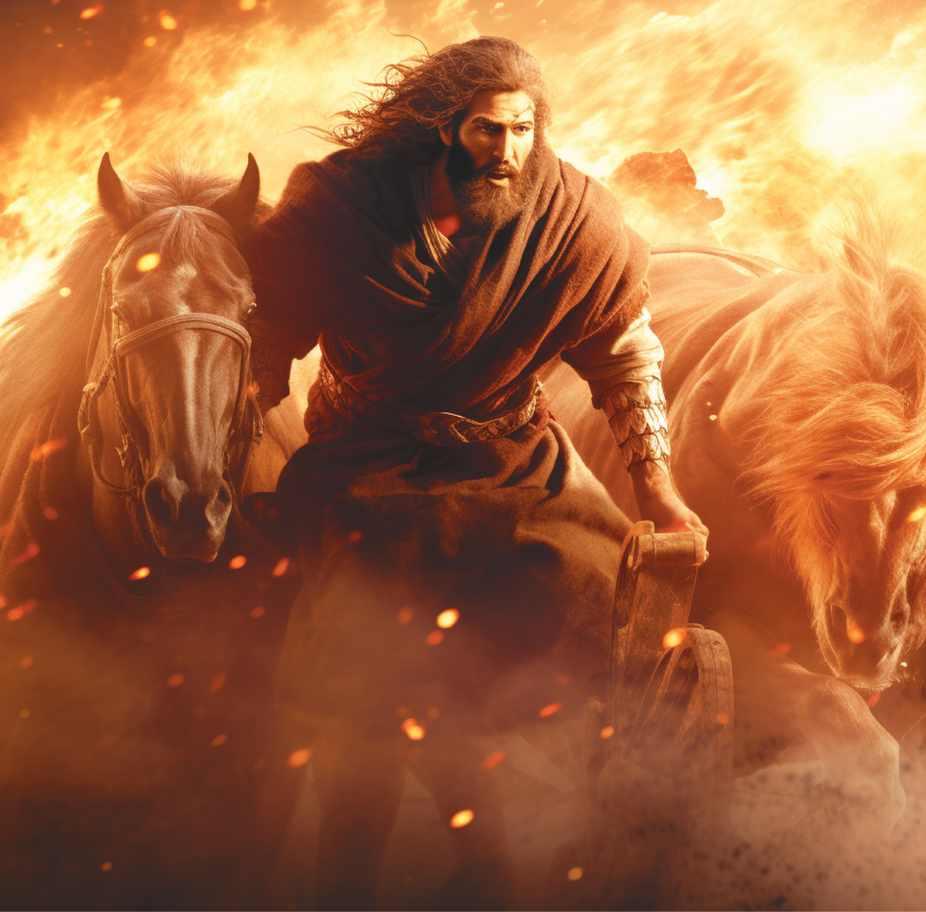
DEPLETED OR DEPENDENT?
RESILIENCE IN THE WILDERNESS: ELIJAH’S STORY HELPS US KEEP GOING
ELIJAH, PROPHETS, AND THE POWER OF THE HOLY SPIRIT
THE ART OF LETTING GO: THE POWER OF FORGIVENESS


DEPLETED OR DEPENDENT?
RESILIENCE IN THE WILDERNESS: ELIJAH’S STORY HELPS US KEEP GOING
ELIJAH, PROPHETS, AND THE POWER OF THE HOLY SPIRIT
THE ART OF LETTING GO: THE POWER OF FORGIVENESS
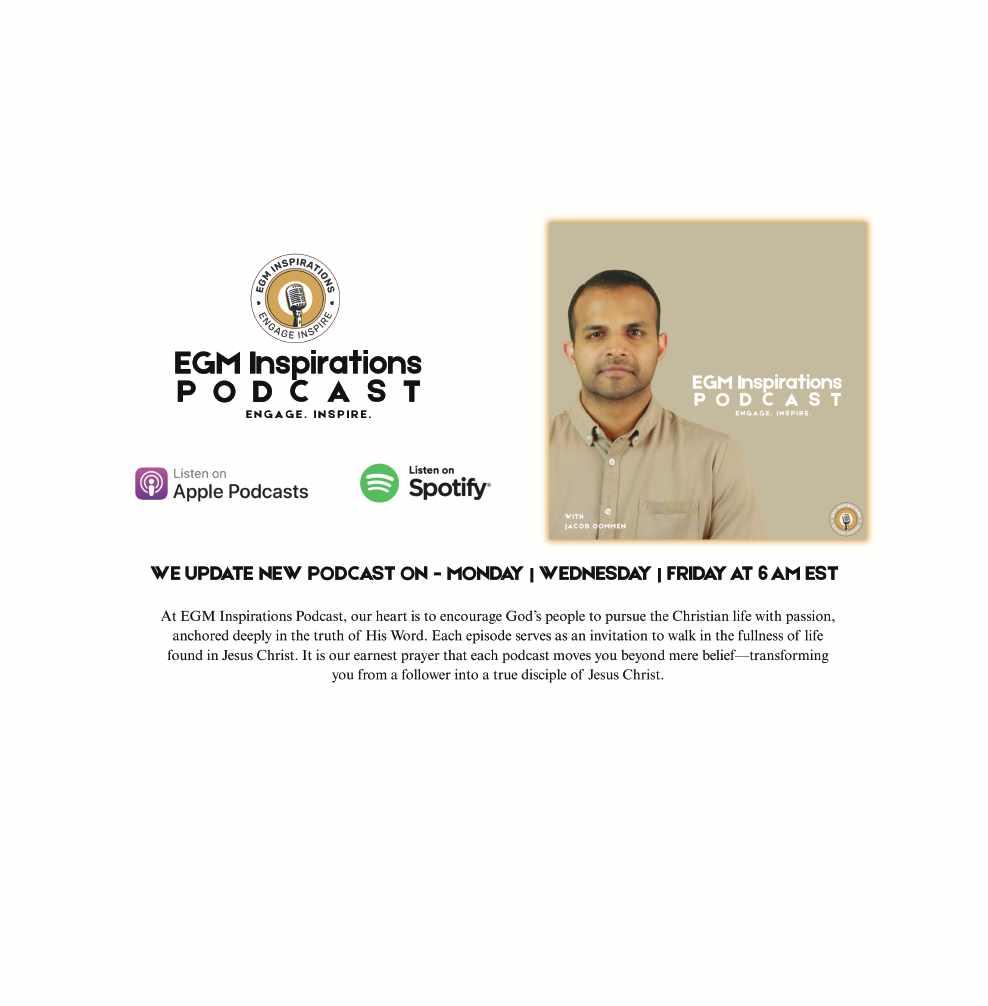


CONNECT ELOHIMGOSPELMINISTRIES.COM EGMINSPIRATIONS.COM
All Bible references are from the New International Version, English Standard Version, New Living Translation, King James Version.
EGM Times is published by Elohim Gospel Ministries, USA. All rights reserved. Reproduction in whole or in part without written permission is prohibited. EGM Times has no subscription price and is supported through contributions worldwide. Because all EGM Times editions are preplanned, we are unable to accept unsolicited manuscripts.
For more information or to sign up for your free copy of egm times, visit: elohimgospelministries.com
President: Evg. Jacob Vilgi Oommen
Associate Editor: Gideon Pingkihan
Content Editor: Effie Ochago
Design: EGM Media
Depleted or Dependent?
-Michelle Martino
11
Resilience in the Wilderness: Elijah’s Story Helps Us Keep Going
-Melie Williams
20
Elijah, Prophets, and the Power of the Holy Spirit
-Effie Ochago
23
The Art of Letting Go: The Power of Forgiveness
-Team EGM Times
27
If only they knew
-Daya Raja

Michelle Martino is a teacher, writer, prayer warrior, and Bible study nerd whose desire is to see women transformed by the truth of God's Word. Michelle is the author of the Bible study "Steadfast: Cultivating Sacred Stability in the Midst of Chaotic Circumstances" and writes for the First 5 Bible teaching app with Proverbs 31 Ministries. When she's not studying Scripture, Michelle can be found preserving flowers or working out at CrossFit. You can connect with her at ConsiderTheJoy.com or on Instagram at @michelle_martino_.

Melie Williams is a resilience strategist, neuroscience graduate student, and host of the Diamonds in Dumpster Fires podcast, where faith meets brain science in the messiest moments of life. She’s passionate about helping others rebuild after burnout, heartbreak, and major life pivots. With a blend of humor, hope, and practical tools, Melie makes resilience feel possible again. She’s currently working on a book about how we rewire and rise after life turns up the heat.

Effie is a writer and editor based in Nairobi, Kenya, with a deep passion for the word of God. She holds a Bachelor of Arts degree in Language and Communication and currently serves as the Content Editor for EGM Times.Dedicated to sharing biblical truth and inspiring others in their faith journey, she uses her writing to uplift and encourage. You can connect with her using her email effieochago@gmail.com

Dear Brothers and Sisters in Christ, I hope you are all doing well by God’s grace. As we enter the months of July and August, we’re excited to share something close to our hearts: a short but powerful lesson from the life of Elijah, and what it teaches us about one of the hardest things to do — forgiving.
Most people know Elijah as the superhero prophet who called fire down from heaven. He stood up against hundreds of false prophets and proved that God is real and powerful (1 Kings 18). But here’s something people don’t always see. After all that, Elijah got scared, ran away, and felt so down that he wanted to give up (1 Kings 19). He felt alone, tired, and maybe even like a failure. And what did God do? God didn’t yell at him or punish him. Instead, God cared for him. He gave him food, let him rest, and gently spoke to him in a soft whisper. And that moment wasn’t about fire or power. It was about healing. It was about forgiveness.
Forgiveness means letting go of the pain, the anger, and the “you hurt me” moments. It doesn’t mean what happened was okay – it means we trust God to heal our hearts and take care of justice. Sometimes, we have to forgive others. Sometimes, we have to forgive ourselves. Elijah had to do both.
God reminded Elijah, “You’re not alone. I still have a plan for you.” That’s what forgiveness does – it gives us a fresh start. When we don’t forgive, our hearts feel heavy. We stay stuck in the past. But when we forgive, we feel free. God can use us again – just like He used Elijah.
Like Elijah, we may feel drained or disappointed – but God still calls us forward, gently, and lovingly.
Let go. Forgive. Rise again.
From all of us at EGM Times, we bless you with peace, healing, and new beginnings. Like Elijah, may you be strong in God’s power – and soft in heart to forgive.
In His Service, Gideon Pingkihan
Associate Editor EGM Times
-Michelle Martino
Have you ever done something bold for the Lord, expecting to be filled with joy, but ended up exhausted? You might question, "Shouldn't I feel more excited about what the Lord has done?" To your surprise, you feel weaker, not stronger, than before you started.
After a season of faithfully serving the Lord in multiple capacities, I found myself depleted of energy and motivation to keep going. I asked God to renew my strength as I depended on Him, but I remained in a state of sheer exhaustion. I didn’t understand how things that were usually so life-giving to me had drained me. But, after several days of prayer and rest, I felt prepared for what the Lord had planned for me next.
Elijah, a prophet in the Old Testament, experienced this type of burnout in 1 Kings 19. Before, he stood firm in his faith. He remained faithful to his assignment from the Lord, no matter the cost. Elijah personally encountered and heard from God. He even called upon the Lord to disprove the false god Baal in front of all of Israel, and God showed Himself as the one, true, sovereign Lord (1 Kings 18).
But shortly after the showdown, King Ahab's pagan wife, Jezebel, threatened Elijah's life. Elijah had grown weary and fled the area. In 1 Kings 19:4, Elijah seeks solitude and an encounter with the Lord in his desperation. “But he himself went a day's journey into the wilderness and came and sat down under a broom tree. And he asked that he might die, saying, ‘It is enough; now, O Lord, take away my life, for I am no better than my fathers’” (ESV). After traveling away from the people, Elijah brings his raw honesty to God and invites him into this place of fear and discouragement. And God gives Elijah three things to help him continue in his calling.
After boldly proclaiming the truth of God's power and goodness, being rejected by the king, and traveling a day to be alone with God, Elijah would be exhausted! Scripture tells us that Elijah was honest with the Lord and slept twice (1 Kings 19:5-6). In this place of solitude, Elijah was distant from Jezebel's threats. He cried out to the Lord and slept in safety. Sometimes, before we receive anything from the Lord, we need to make space to rest.

“WEARINESS IS NOT A WEAKNESS. IT IS AN INVITATION TO RELY ON THE LORD.”
Both times after resting, an angel of the Lord appears and commands Elijah to “arise and eat” (1 Kings 5, 7). This food, a cake baked on hot stones, and a jar of water would sustain him for 40 days as he journeyed to Horeb (1 Kings 19:8). God knew Elijah’s needs for sleep and sustenance had to be met. And, in this quiet place, He provided.
God appoints Elisha to assist Elijah in leading the Israelites in faith. Now, Elijah didn't have to carry out this mission alone. Elijah struggled with loneliness (1 Kings 19:10), and God knew this exhaustion could be alleviated with the support of another. Elisha would soon become the prophet of Israel (1 Kings 19:16), and Elijah would assist him in this transition.
Later on in his journey, Elijah arrives at Horeb, where he hides in a cave and the Lord questions what he's doing there (1 Kings 19:9). The Lord already saw and knew Elijah's location (Psalm 139:7-8), but wanted to call him out from a place of hiding into a time of personal encounter. Instead of through fire, smoke, thunder, or a visible miracle, the Lord meets Elijah in a whisper. Like Elijah, when we slow down and be still before God, we will hear Him. God personally encounters us in our time of solitude, not always answering our prayers in a grand way, but by revealing His nearness, His comfort, and His words in a subtle way. Before stepping into his next assignment, Elijah needed to know God as his Provider to preach this truth to the Israelites. He needed to experience God's goodness himself, not only speak of it.
Like Elijah, when we feel we're at our end, the Lord has more for us, not just in serving, but also in our personal lives. Weariness is not a weakness. It's an invitation to rely on the Lord. We aren't called to fulfill our callings apart from God. We are called to partner with Him in all we do. As we make time to be still and seek God, He will strengthen us in our weariness (Isaiah 40:31). He will give us rest (Matthew 11:28-30). He will provide for us (Luke 12:22-31). And He has given us the church so that we can share our lives with an intentional, godly community (Hebrews 10:24-25). This truth isn’t limited to ministry endeavors. God wants to give us rest and provision personally. He cares about our hearts and our relationship with Him.
When we prioritize times of solitude over filling our schedules, we can know and experience a refreshing personal encounter with God.
“SOMETIMES, BEFORE WE RECEIVE ANYTHING FROM THE LORD, WE NEED TO MAKE SPACE TO REST.”


Now Elijah the Tishbite, from Tishbe in Gilead, said to Ahab, “As the Lord, the God of Israel, lives, whom I serve, there will be neither dew nor rain in the next few years except at my word.” 2 Then the word of the Lord came to Elijah: 3 “Leave here, turn eastward and hide in the Kerith Ravine, east of the Jordan. 4 You will drink from the brook, and I have directed the ravens to supply you with food there.” 5 So he did what the Lord had told him. He went to the Kerith Ravine, east of the Jordan, and stayed there. 6 The ravens brought him bread and meat in the morning and bread and meat in the evening, and he drank from the brook. (1 Kings 17:1-6)

10 So he went to Zarephath. When he came to the town gate, a widow was there gathering sticks. He called to her and asked, “Would you bring me a little water in a jar so I may have a drink?” 11 As she was going to get it, he called, “And bring me, please, a piece of bread.”
12 “As surely as the Lord your God lives,” she replied, “I don’t have any bread—only a handful of flour in a jar and a little olive oil in a jug. I am gathering a few sticks to take home and make a meal for myself and my son, that we may eat it—and die.”
13 Elijah said to her, “Don’t be afraid. Go home and do as you have said. But first make a small loaf of bread for me from what you have and bring it to me, and then make something for yourself and your son.
14 For this is what the Lord, the God of Israel, says: ‘The jar of flour will not be used up and the jug of oil will not run dry until the day the Lord sends rain on the land.’”
(1 Kings 17:10-14)
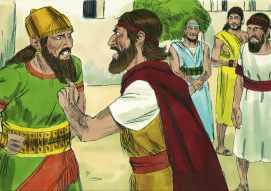
15 Elijah said, “As the Lord Almighty lives, whom I serve, I will surely present myself to Ahab today.” 16 So Obadiah went to meet Ahab and told him, and Ahab went to meet Elijah. 17 When he saw Elijah, he said to him, “Is that you, you troubler of Israel?” (1 Kings 18:15-17)
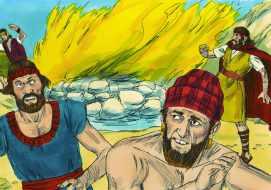
25 Elijah said to the prophets of Baal, “Choose one of the bulls and prepare it first, since there are so many of you. Call on the name of your god, but do not light the fire.” 26 So they took the bull given them and prepared it. Then they called on the name of Baal from morning till noon. “Baal, answer us!” they shouted. But there was no response; no one answered. And they danced around the altar they had made. (1 Kings 18:25-26)
36 At the time of sacrifice, the prophet Elijah stepped forward and prayed: “Lord, the God of Abraham, Isaac and Israel, let it be known today that you are God in Israel and that I am your servant and have done all these things at your command. 37 Answer me, Lord, answer me, so these people will know that you, Lord, are God, and that you are turning their hearts back again.”38 Then the fire of the Lord fell and burned up the sacrifice, the wood, the stones and the soil, and also licked up the water in the trench.39 When all the people saw this, they fell prostrate and cried, “The Lord—he is God! The Lord—he is God!” (1 Kings 18:36-39)

Elijah was afraid and ran for his life. When he came to Beersheba in Judah, he left his servant there, 4 while he himself went a day’s journey into the wilderness. He came to a broom bush, sat down under it and prayed that he might die. “I have had enough, Lord,” he said. “Take my life; I am no better than my ancestors.” 5 Then he lay down under the bush and fell asleep.
(1 Kings 19:3-5)
12 After the earthquake came a fire, but the Lord was not in the fire. And after the fire came a gentle whisper. 13 When Elijah heard it, he pulled his cloak over his face and went out and stood at the mouth of the cave.Then a voice said to him, “What are you doing here, Elijah?”14 He replied, “I have been very zealous for the Lord God Almighty. The Israelites have rejected your covenant, torn down your altars, and put your prophets to death with the sword. I am the only one left, and now they are trying to kill me too.” 15 The Lord said to him, “Go back the way you came, and go to the Desert of Damascus. When you get there, anoint Hazael king over Aram.
(1 Kings 19:12-15)

9 When they had crossed, Elijah said to Elisha, “Tell me, what can I do for you before I am taken from you?” “Let me inherit a double portion of your spirit,” Elisha replied.10 “You have asked a difficult thing,” Elijah said, “yet if you see me when I am taken from you, it will be yours—otherwise, it will not.”11 As they were walking along and talking together, suddenly a chariot of fire and horses of fire appeared and separated the two of them, and Elijah went up to heaven in a whirlwind. 12 Elisha saw this and cried out, “My father! My father! The chariots and horsemen of Israel!” And Elisha saw him no more. Then he took hold of his garment and tore it in two.13 Elisha then picked up Elijah’s cloak that had fallen from him and went back and stood on the bank of the Jordan. 14 He took the cloak that had fallen from Elijah and struck the water with it. “Where now is the Lord, the God of Elijah?” he asked. When he struck the water, it divided to the right and to the left, and he crossed over.
(2 Kings 2: 9-14)
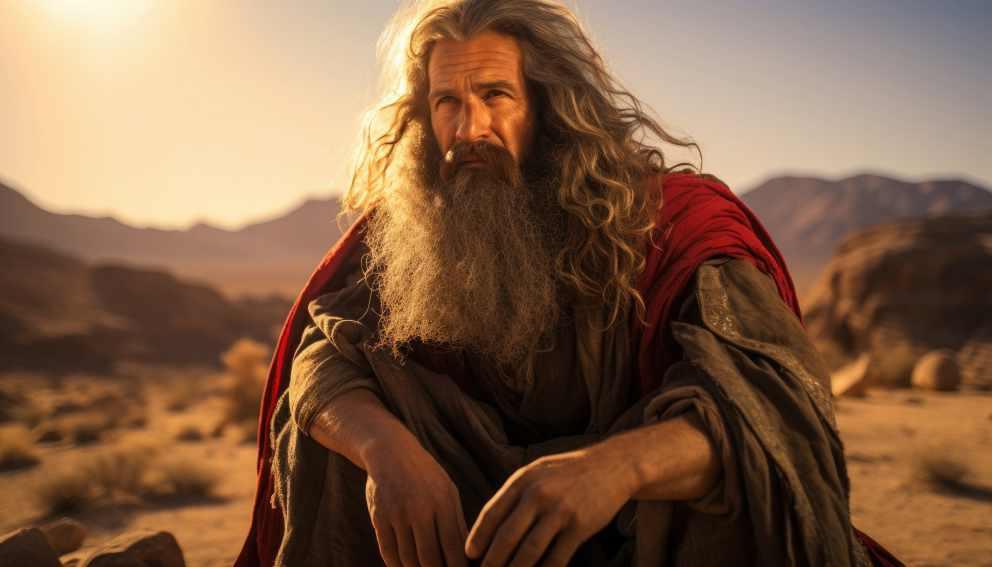
-Melie Williams
Have you ever experienced a spiritual high, only to crash into emotional collapse a day or two later?
If so, you're in good company. Even the prophet Elijah found himself in that place after one of the most dramatic moments in Scripture. You may recall the story in 1 Kings 18, where Elijah calls down fire from heaven in a showdown with the prophets of Baal. Yet, by chapter 19, we find him hiding, overwhelmed, and despairing. What happened?
Elijah went from the mountaintop to the wilderness in record time. And if we look at it with compassion, we might admit it’s the most relatable part of his story. Because even the most faithful eventually fall apart. We’re only human after all.
The key to resilience in those valleys between the peaks isn't to push through those burnout moments; it's to recognize when we've hit our limit and let God meet us there.
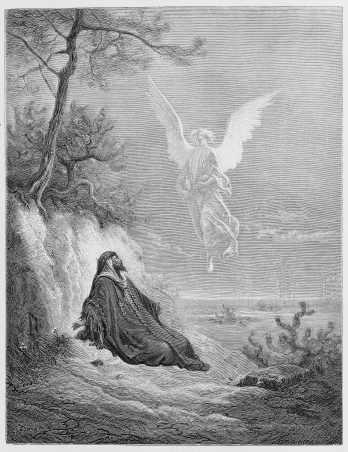
God’s Response to Burnout Is Not Reprimand, but Rest.
After fleeing, Elijah has what we might call a bit of a meltdown. He asks God to take his life (1 Kings 19:4). Any of us might have done the same. Here he was, basking in the win of just having accomplished something great for God, and only moments later, Jezebel was seeking to kill him. Maybe he thought that after his victory over the prophets of Baal, he'd get a few easy years, or months, or at least a few slower-paced days. But that's not what happened.
As someone who enjoys studying the science behind why we humans do what we do, I'd venture that our friend Elijah was overcome by a typical fight/flight response. It occurs when our amygdala, the part of the brain responsible for triggering a danger response, overpowers our thinking brain (prefrontal cortex). We want the amygdala to kick in when we're in danger, and fleeing from Jezebel's murderous intentions seems like a dire situation, so Elijah's brain was doing what God created it to do. The problem was that he couldn’t calm down and return to his normal state after the flight, which led to burnout and despair.
But look at what God does. The Lord sends an angel to Elijah in his time of need.
The first time the angel arrives on the scene, he offers Elijah food and leaves. However, the angel returns with more food and further instructions for Elijah to continue his journey. God gave Elijah rest, then told him to keep going. God built rest into the design of the world, but there is a time to get up, be strengthened, and move forward.
It shouldn't be lost on us that God often first meets us in our burnout by attending to our physical needs. Our bodies need rest. Sometimes, especially in ministry situations, the most holy thing to do is to keep up with the hustle and power through whatever work is on our plates. But God never intended us to move like machines. He tells us to rest for good reason. It restores our minds, bodies, and spirits.
Let's take a moment to discuss Elijah's cave, for it serves not only as the place where Elijah rested, but also as a powerful metaphor for our own lives. When Elijah retreats to the cave, it's not so he can hide from his purpose. He enters the cave after a journey of 40 days, when rest is precisely what he needs. In silence, with no one else around, God speaks to him. Elijah's response shows us he hasn't gotten over what's happened just yet. He seems like a man still living in fear. And that's when God shows up for him amid his despair - not in a loud and showy shout, but in a small, quiet voice—a whisper (1 Kings 19:12-13).
Silence is sacred, and being in the wilderness doesn't always have to mean a punishment. The spiritual discipline of silence can easily be forgotten in our hectic modern world, but it is often in those moments of silence and stillness before the Lord that He speaks to our hearts. Sometimes God gets our attention by preparing us for what comes next. God might bring us to that place where silence is precisely what we need so we can hear His voice more clearly. Psalm 46:10 tells us "Be still and know that I am God…" We don't need to worry. We need only be still before our Creator.
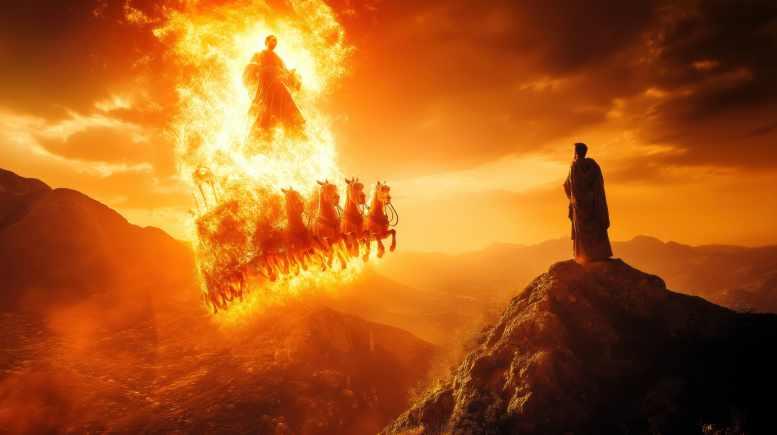
God Rebuilds and Reorients Us
Elijah didn't know what was coming next in his life, but God did. And He gave him the necessary strength for his path. When we deal with burnout, confusion, or circumstances that don't make sense, we don't have to fear the future or worry that we won't be who we were before the storm hit. God doesn't just restore us to who we were before; He rebuilds us and reorients us toward the purpose He has for us. And resilience isn't loud or showy. It's often built in the wilderness with divine whispers instead of loud miracles. If you're currently in a wilderness season, remember: God is still speaking, and you are still growing.
Amen is the last word of the Bible.
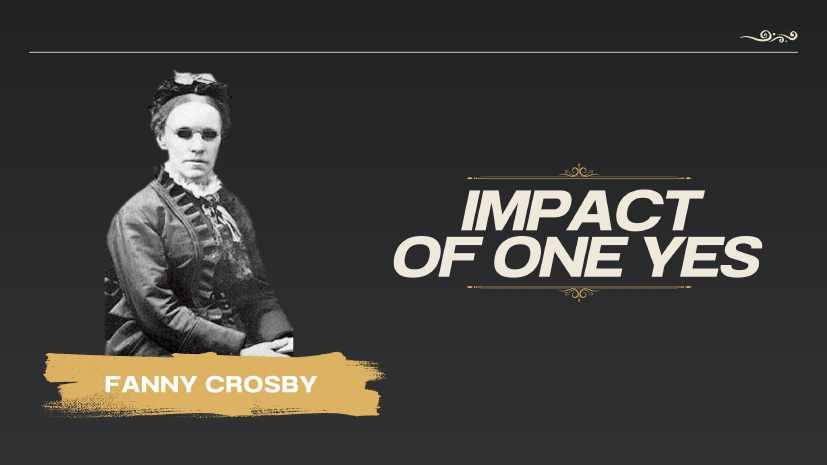
Frances Jane “Fanny” Crosby (1820–1915) was the hymn writer behind the beloved song "Blessed Assurance," written in 1873. Although she lost her sight in infancy, her spiritual vision and deep trust in God led her to write over 8,000 hymns—many of which continue to shape worship today.
Fanny was born in Putnam County, New York. At just six weeks old, a medical mishap caused her to go blind. Raised by her devout grandmother, she was immersed in Scripture from a young age and developed a strong sense of God’s presence in her life. Despite her love for the Bible and her poetic talent, Fanny didn’t come to a saving knowledge of Jesus Christ until 1850, at age 30. During a Methodist revival at the Broadway Tabernacle in New York City, she responded to the altar call and later testified, “My very soul was flooded with celestial light. I sprang to my feet, shouting, ‘Hallelujah!’ and then for the first time I realized that I had been trying to hold the world in one hand and the Lord in the other.”
“If I had a choice, I would still choose to remain blind…for when I die, the first face I will ever see will be the face of my blessed saviour.”
- fanny crosby
After her conversion, Fanny dedicated her life fully to the Lord. Educated at the New York Institution for the Blind, where she also taught, she began composing hymns in her 40s. She partnered with composers like Phoebe Knapp, who wrote the melody for "Blessed Assurance." When Knapp played the tune for her, Fanny immediately responded, “That says, Blessed Assurance, Jesus is mine!” and quickly penned the now-famous lyrics.
Though she gained national fame, Fanny lived simply and humbly, devoting her time and money to missions, prison ministry, and helping the poor. She often said she never regretted her blindness, as it helped her depend completely on Christ and look forward to the day she would see Him face to face.
Fanny Crosby’s story is one of surrendered gifts and steadfast hope. Her life and lyrics remind us that true assurance comes not from sight, but from faith in Jesus Christ.
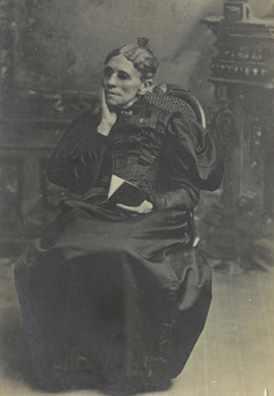
FANNY CROSBY ANSWERED GOD’S CALL ON HER LIFE—AND THROUGH HER OBEDIENCE, HE USED HER MIGHTILY TO ADVANCE HIS KINGDOM. WHAT’S HOLDING YOU BACK FROM SAYING YES TO GOD’S CALL ON YOUR LIFE? DON’T WAIT. SAY YES BEFORE IT’S TOO LATE. YOU WON’T REGRET IT.

“god uses men who are weak and flexIble enough to lean on hIm.”
-hudson taylor
-Effie Ochago
What does it mean to hear from God today? To answer that, we must look back at one of the most powerful prophets in history: Elijah.
Elijah is undoubtedly one of the most powerful prophets in the Old Testament. He predicted a drought, raised the widow of Zarephath’s son, went to heaven in a chariot of fire, and appeared during the transfiguration of Jesus.
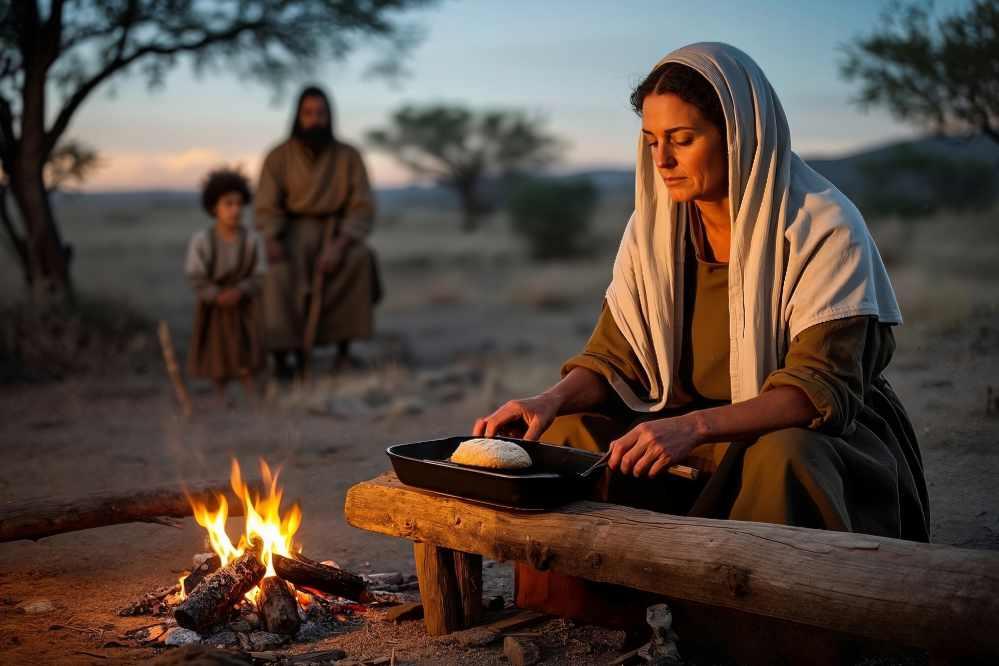
To fully appreciate Elijah’s role, we must first understand the purpose of prophets in his time. In the Old Testament, prophets served as a link between God and humanity. God used prophets to foretell the future and to call people to repentance when they went astray. The prophet reminded people of their sins and executed God’s judgment. The widow of Zarephath understood this, and that’s why she said to Elijah, “Man of God, why did you do this to me? Did you come here to remind God of my sins and my son’s death?”
(1 Kings 17:18)
Even though prophets performed great miracles, they did not have the indwelling presence of the Holy Spirit. Instead, the Spirit of God would come upon them temporarily and then lift. In contrast, in the New Testament, every believer receives the Holy Spirit upon being born again. The Spirit dwells within them permanently, guiding and teaching them, and never departing. Even when a believer stumbles, the Holy Spirit convicts them of righteousness, reminding them of their identity in Christ. This constant, internal fellowship with the Spirit is something the prophets of old could only anticipate and long for.
“And it shall come to pass afterward, that I will pour out my Spirit upon all flesh; and your sons and your daughters shall prophesy, your old men shall dream dreams, your young men shall see visions” (Joel 2:28).
With the help of the Holy Spirit, every believer can receive inspiration from God. However, not all believers are called to be prophets. The prophetic expresses itself in many forms: some people dream, others see visions, some hear an audible voice, while others feel an impression. There is no one-size-fits-all in the Kingdom of God. God has given each of us different gifts according to our calling (Romans 12:6).
Gifts, including the gift of prophecy, are freely given to us as a result of Jesus’ death on the cross and are meant to edify the body of Christ. The Bible exhorts us to desire spiritual gifts, especially the gift of prophecy (1 Corinthians 14:1). Unlike in the Old Testament, where prophets often brought judgment, in the New Testament, the gift of prophecy brings strengthening, encouragement, and comfort, and always points us back to Jesus.
“Gifts, including the gift of prophecy, are freely given to us as a result of Jesus’ death on the cross and are meant to edify the body of Christ.”
During the transfiguration, Elijah and Moses appeared alongside Jesus to represent the Law and the Prophets. Their appearance symbolized the closing of one era and the ushering in of another, the era of grace.
But even the most powerful prophets were still human. Elijah felt afraid, ran for his life, and became depressed, even suicidal. The only person we are called to look up to without reservation is Jesus. Scripture also warns us to test every Spirit and not to be easily swayed. Whenever we receive a prophetic inspiration or word, we must always go back to scripture to confirm that it is in line with the word of God. A strong knowledge of the Word of God is the best protection against false prophets and teachers (Matthew 7:15, 1 John 4:1).
At the same time, we must not swing to the other extreme, treating prophecy with contempt or ignoring the genuine voice of God through His messengers (1 Thessalonians 5:20-21). God has called us to walk in discernment, not fear.
Finally, the most essential quality for a believer to walk in is love. Scripture reminds us that without love, even the most powerful tongues and prophetic words are meaningless (1 Corinthians 13:1-2). Let us desire spiritual gifts, yes, but let us pursue love above all.
As we walk in step with the Holy Spirit, may we desire not just the gifts but the heart of the Giver. Let us speak and live with boldness, humility, and compassion, just like Elijah, yet under a better covenant.
“But even the most powerful prophets were still human. Elijah felt afraid, ran for his life, and became depressed, even suicidal. The only person we are called to look up to without reservation is Jesus.”
Gary Leon Ridgway, known as the Green River Killer or the Green River Strangler, is an American serial killer who was convicted of murdering forty-eight women between 1982 and 1998 in the northwestern United States. At the time of his arrest in 2001, he was considered the most prolific serial killer in U.S. history based on confirmed murders.
During his court trial, the families of the victims were given the opportunity to speak. One by one, they looked into Ridgway’s face and poured out their grief, anger, and the deep wounds his actions left behind—wounds they would carry for the rest of their lives. But one father chose a different response.
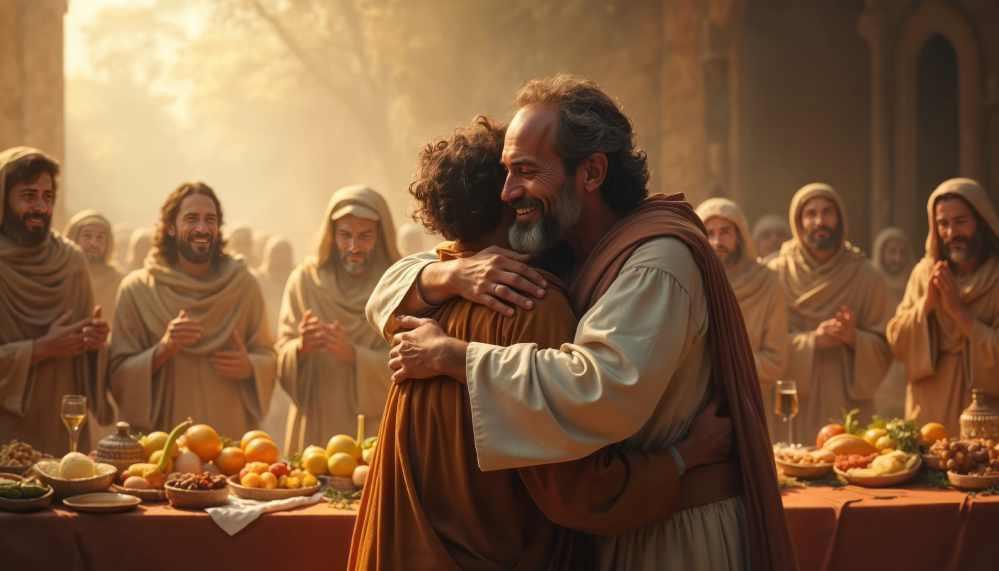
“yet when you learn to forgive, you are no longer trapped by the past actions of others and can finally feel free.”

Almost everyone has experienced being wronged by someone. It could be a former co-worker, friend, or even family member. However, holding onto those negative feelings can cause significant harm to your health –including your spiritual well-being.
Robert Rule, the father of victim Linda Rule, looked at Ridgway and said:
"Mr. Ridgway, there are people here who hate you. I am not one of them. You have made it difficult to live up to what I believe, and that is what God says to do, and that is to forgive. You are forgiven, sir."
In that moment, the cold, emotionless face of Gary Ridgway broke. The man who had shown no remorse for years—who had taken the lives of dozens of women began to weep.
“Forgiving a person who has wronged you is never easy, but dwelling on those events & reliving them over and over can fill your mind with negative thoughts & suppressed anger”, says Dr. Tyler VanderWeele, co-director of the Initiative on Health, Religion, & Spirituality at the Harvard T.H. Chan School of Public Health. “Yet, when you learn to forgive, you are no longer trapped by past actions of others & can finally feel free.”, he added. Forgiveness isn’t about them. It’s about us. It’s about healing the heart that was broken, not pretending it was never cracked.
But forgiveness isn't always easy. And it doesn't mean saying, "It's okay.", if it wasn't.
It means saying, "I'm not going to let this hurt control me anymore." Even Jesus spoke extensively about forgiveness. One time, while He was dying on the cross, He prayed for people who hurt Him. He said, "Father, forgive them" (Luke 23:34). How could someone show such love in the face of such cruelty? It wasn't weakness – it was strength. A strength rooted in love that refuses to be overcome by evil.
The Bible also says: “Forgive, just like God forgave you.” (Colossians 3:13). Even at our worst, God forgave us unconditionally and refuses to hold our past against us. His grace is new every day. In light of this, it only makes sense for us to extend that same grace to others. However, forgiveness doesn’t mean becoming a doormat. We are called to be discerning. While many people have good intentions, some have hardened their hearts and hurt others without remorse.
We can choose to forgive and still walk away from harmful or unhealthy situations.
Nothing about forgiveness feels natural. When we’re hurt, our instinct is to protect, to defend, to retaliate, or at the very least, to retreat into silence. We replay the offense, rehearse what we should’ve said, or quietly let bitterness take root. And yet, in Christian life, forgiveness isn’t optional. It’s central. Essential. Non-negotiable. Why? Because forgiveness is the heart of the gospel. Before we ever thought of asking mercy, God had already extended it. As the Apostle Paul wrote, “While we were still sinners, Christ died for us.” (Romans 5:8)
That’s radical forgiveness. That’s grace. And that’s the standard we’re called to live by.
It wasnʼt weakness, it was strength. a strength rooted in love that refuses to be overcome by evil.

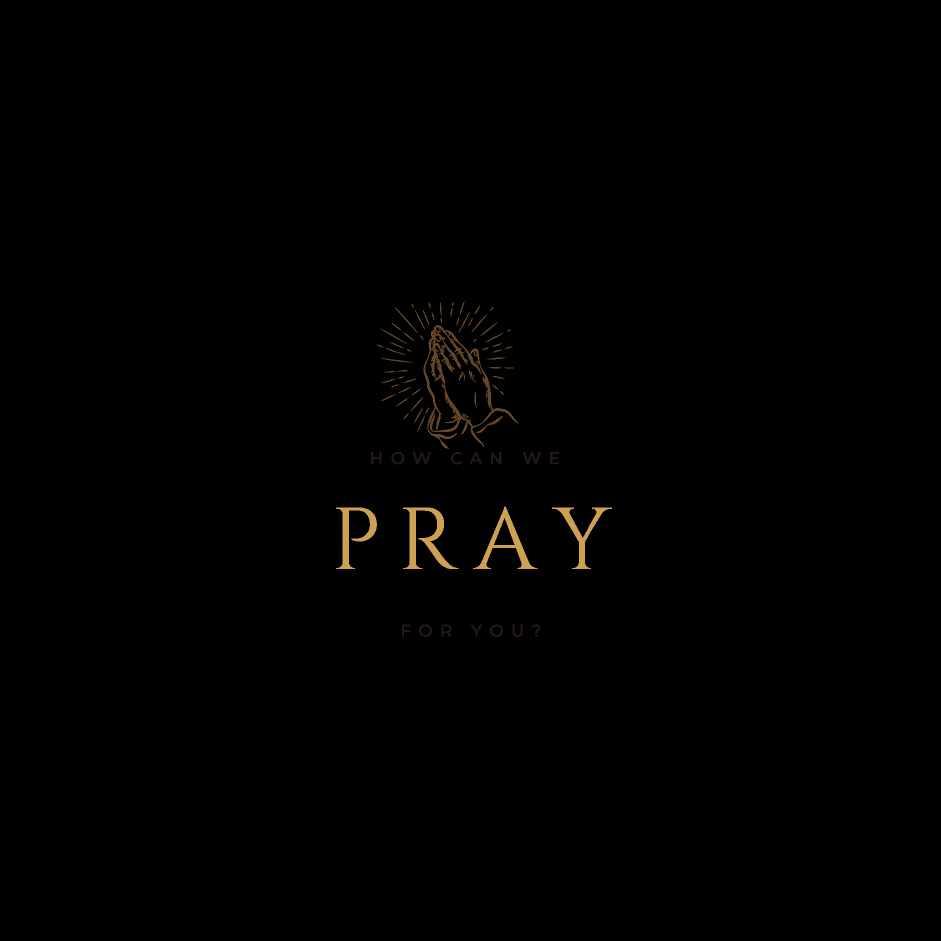

Forgiveness never came easy for me. It was often a struggle, one that took weeks and sometimes years. I often felt it was unjust to forgive; it felt like letting the wrongdoer roam free when I chose to forgive.
But recently, God in His mercy took me on a journey of self-discovery. He helped me see my own shortcomings and mistakes, areas where I had heavily erred. These were mistakes I could never overcome except for the mercy of God and the people around me. Sins like pride, self-righteousness, self-centeredness, a judgmental attitude, and similar failings. Looking back, how confident I was in my self-righteousness now makes me cringe. Like the Apostle Paul said, "What benefit did you reap at that time from the things you are now ashamed of? Those things result in death!" (Romans 6:21 NIV)
Now as I see myself in the light of these mistakes, I can openly admit that if I had known what I was doing then, or if I had understood the consequences my sin had on others and myself, I would have done everything possible to resist it. But I did not know any better.
Jesus' prayer on the cross also anchors on the same premise: "Father, forgive them, for they do not know what they are doing." Jesus' response looked beyond what He was experiencing in the moment, beyond how the soldiers and the crowd were treating Him. He went one step deeper and addressed the "why" of their behavior in His prayer: they did not know what they were doing. They did not know how they were grieving the heart of God. They did not know how they were hurting Jesus, and they did not know the consequence of their sin. They did not know how the devil was using them as an instrument to push for darkness and destruction—if they had known, they would have behaved very differently. This is also the case for everyone around us who is living in sin, everyone who is actively trying to hurt and destroy others.
A fundamental tenet we have to grasp when it comes to forgiveness is this: people want to do well, but they honestly do not know. This revelation helped Jesus to look past their sins, forgive them, and also intercede for them. While the crowd was sneering at Him, and while the soldiers were tormenting Him physically and verbally, He was speaking to His Father about them.
“A fundamental tenet we have to grasp when it comes to forgiveness is this: people want to do well, but they honestly do not know. This revelation helped Jesus to look past their sins, forgive them, and also intercede for them. While the crowd was sneering at Him, and while the soldiers were tormenting Him physically and verbally, He was speaking to His Father about them.”
Jesus demonstrated that even while we are in the middle of a hurting situation, it is possible to stay connected to our Lord and extend forgiveness, if we have a revelation of the situation and God’s bigger purpose. This helped Jesus advance the agenda of His Father.
I pray that as we seek God and grow in His wisdom, He would give us revelation regarding the situations we find ourselves in and strength and strategy to advance the Kingdom of God.

Daya Raja, Bangalore
Daya thinks it’s absolutely cool to be known by Jesus. She deeply appreciates nature, art and silence. Her dream is to fall in love with Jesus and humanity every day. Daya can be reached at dayaraja95@gmail.com
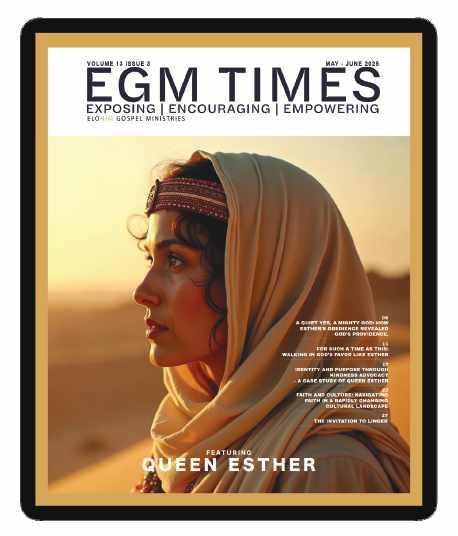

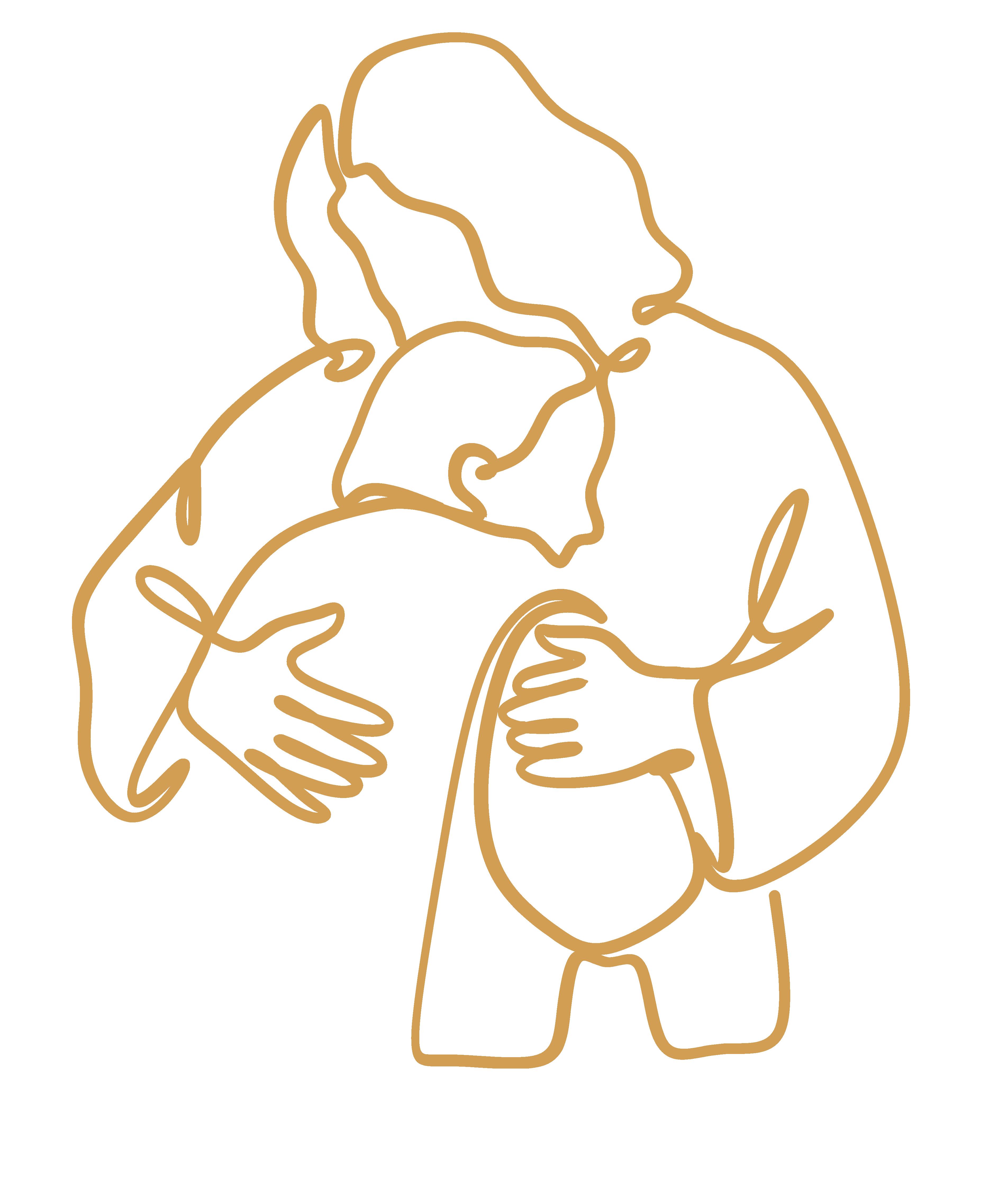
Thank you for joining us in this edition. We hope the life and journey of the prophet Elijah stirred something profound within your spirit.
If you’ve never decided to follow Jesus, this is your moment. He’s reaching out with open arms, ready to embrace you with a love like no other. And if you’ve drifted from your walk with God or feel uncertain about where you stand, now is the perfect time to come home. God’s love for you is unshakable and He longs for you to be part of His family.
You can say this simple but powerful prayer from your heart: “Lord Jesus, I acknowledge that I am a sinner, and that my sins have separated me from you. But today, I believe that you are the Son of God, and that you thought of me when you were crucified, died, and buried. I believe you rose again and are now seated at the right hand of the Father. I accept you now as my Lord and Saviour. Thank you for the gift of salvation and for making me new. Fill me with your Spirit and guide me from this day forward. Amen.”
If you prayed that prayer, congratulations! You’ve just embarked on the most fulfilling journey of your life. You are now a new creation in Christ, and the path ahead is filled with His love and blessings.
We encourage you to connect with a Bible-believing church, surround yourself with a faith-filled community, and immerse yourself in the Word of God daily. Growth comes step by step, and we’re excited to see all that God has in store for you.
Stay blessed, and we look forward to connecting again in our next edition.
With love, Team EGM Times

EVEN YOUTHS GROW TIRED AND WEARY, AND YOUNG MEN STUMBLE AND FALL; BUT THOSE WHO HOPE IN THE LORD WILL RENEW THEIR STRENGTH. THEY WILL SOAR ON WINGS LIKE EAGLES; THEY WILL RUN AND NOT GROW WEARY, THEY WILL WALK AND NOT BE FAINT.
-ISAIAH 40:30-31